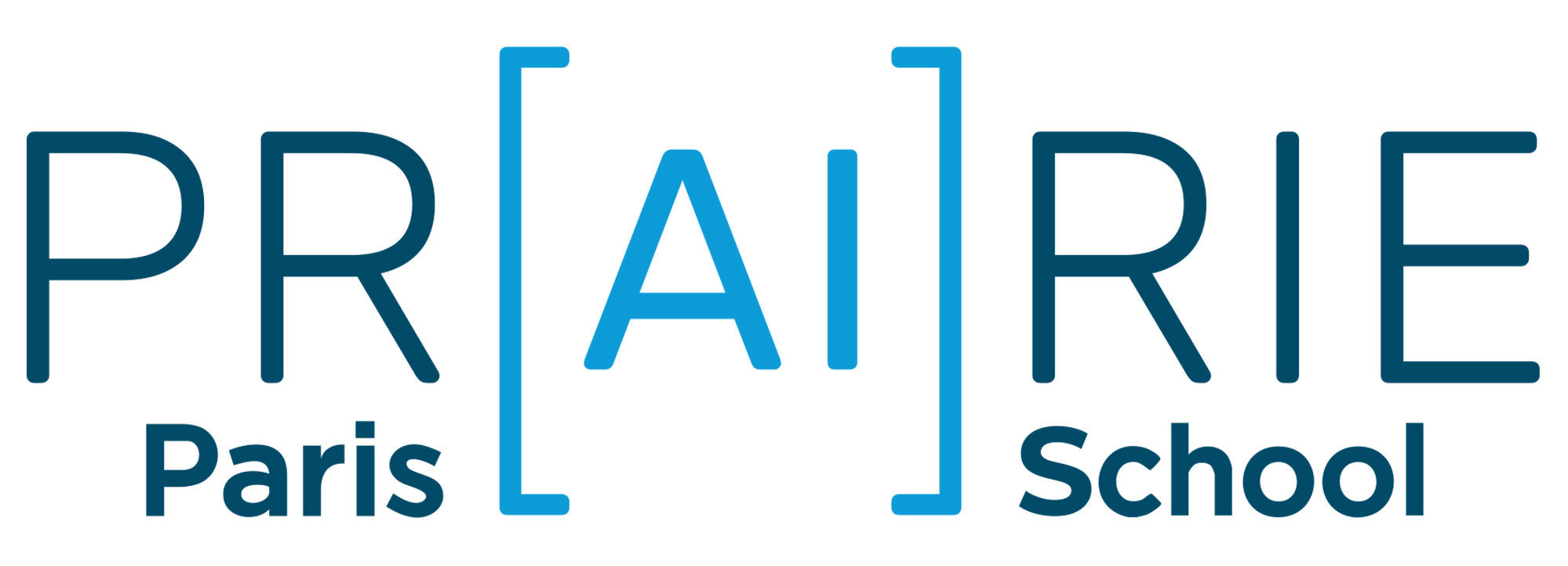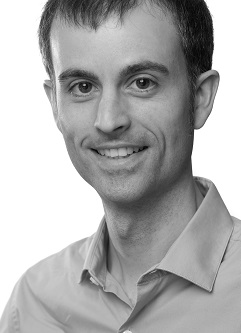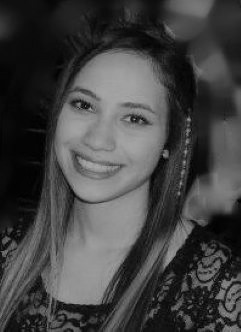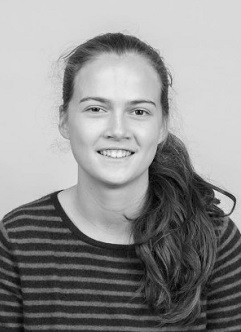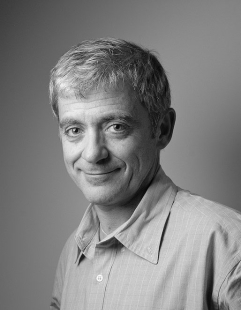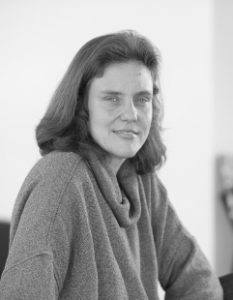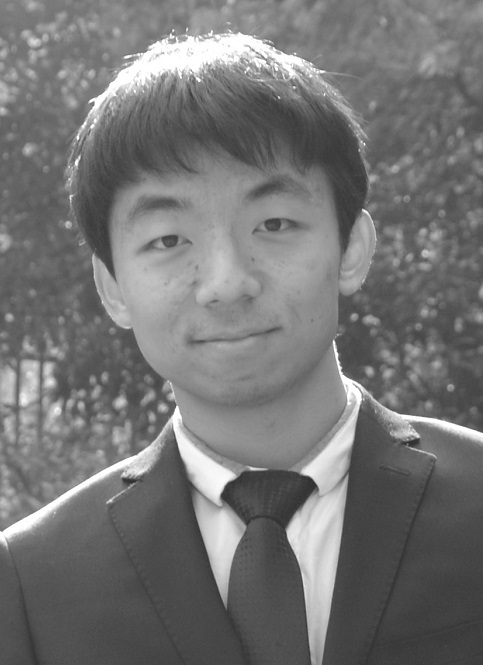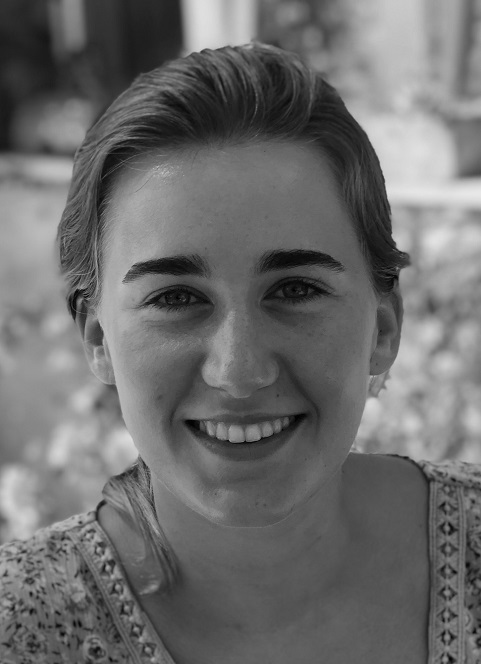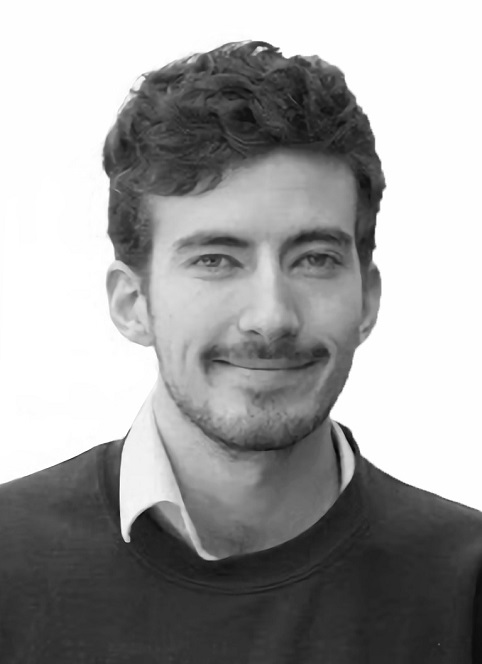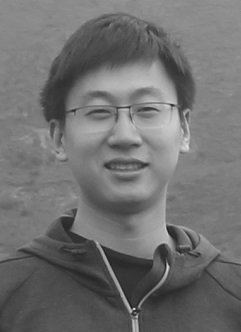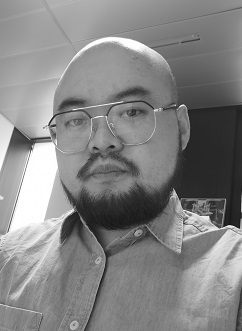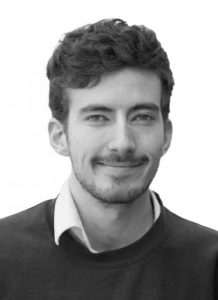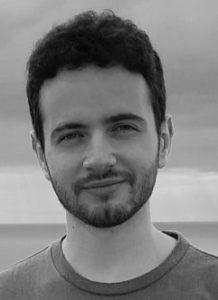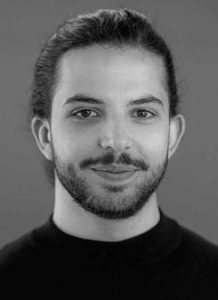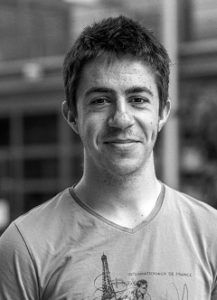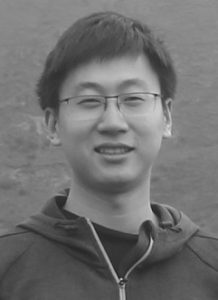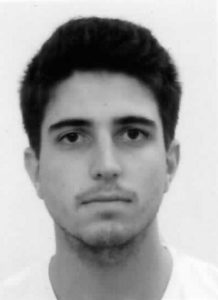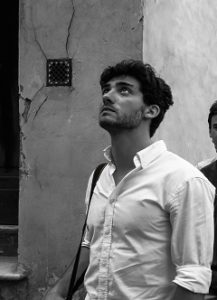TRIGG Scott
Observatoire de Paris-PSL
scott.trigg [at] obspm.fr
Short bio
MA (Mathematics), MA (History of Science), PhD (History of Science), University of Wisconsin-Madison
Research project
EIDA – Editing and analysing historical astronomical diagrams with artificial intelligence.
Short abstract
The EIDA project is applying deep learning for computer vision to develop new algorithms and tools for analysis of the material and epistemological aspects of diagrams in premodern astronomy on a global scale, and inventing new standards for natively-digital critical editions of diagrams.
EL JURDI Rosana
Institut du Cerveau – Paris Brain Institute
rosana.eljurdi [at] icm-institute.org
Short bio
PhD from the University of Rouen Normandie
Research project
Deep Learning for Brain Imaging:
- Validation of Deep Learning Segmentation Models
- Segmentation and Survival analysis of Lymphoma in Brain MRI
Short abstract
Reporting standard errors and confidence intervals is crucial in medical image segmentation research, as accurately measuring the level of improvement achieved is challenging. Current methods often report empirical standard deviation, which is biased due to data inter-dependency between folds. In this project, we focus on estimating confidence intervals in order to determine the scientific contribution made by improved performance over the baseline using experiments on 3D image segmentation, providing a more accurate and reliable measure of performance.
LOIZILLON Sophie
sophie.loizillon [at] icm-institute.org
Short bio
Engineering Degree Bordeaux INP – Université de Bordeaux
Thesis title
Deep learning for assisting diagnosis of neurological diseases using a very large-scale clinical data warehouse.
Short abstract
The aim of this thesis is to design and validate deep learning methods for computer- assisted diagnosis of neurological disorders using a very large dataset (over 100,000 patients) from the AP-HP data warehouse.
Computer vision is the part of AI concerned with the automated interpretation of digital imagery, with very strong links with machine learning, natural image understanding and robotics, and a very wide array of applications in engineering, industry and the sciences.
Computer vision research within PRAIRIE spans many parts from the field, from theoretical work on very general geometric models of the imaging process to self-supervised approaches to visual recognition and the fusion of textual and visual models for robot navigation. Applications pursued by PRAIRIE chairs range from medical imaging and personal and scientific photography to astronomy and microscopy, notably with collaborations with colleagues from the natural language processing and biomedical imaging groups at PRAIRIE, the MIAI 3IA Institute, and the Paris and Lyon observatories.
FU Guanghui
guanghui.fu [at] icm-institute.org
Short bio
Master of Software Engineering; Beijing University of Technology
Thesis topic
Segmentation, classification and generative models for computer-aided diagnosis of neurological diseases from neuroimaging data.
Short abstract
The objective of this project is to design and validate deep learning methods for computer-assisted diagnosis of neurological disorders, and in particular methods that can deal with applications where annotated data is limited.
Short bio
- Master Degree (University of Chinese Academy of Sciences)
- Bachelor Degree (Northwestern Polytechnical University)
Research topic
Learning policies for object manipulation from real videos
Short abstract
Learning accurate policies for diverse tasks and environments is a long-standing challenge in computer vision and robotics. The goal of this project is to learn policies for object manipulation by reconstructing and modeling hands and objects in real videos with people performing related actions.
MAKAROFF Nicolas
Université Paris Dauphine-PSL
makaroff [at] ceremade.dauphine.fr
Short bio
M2 MVA ENS Paris-Saclay
Thesis title
Segmentation and modeling of tree structure by Deep Learning with geometric constraints, applications in biomedical imaging.
Short abstract
Deep Learning has shown real capabilities for different tasks ranging from classification to segmentation in various fields such as chemistry, computer vision or even medicine. Generally, known architectures are used to solve these problems. However, this generality of architectures, although obtaining good results, does not yet consider the geometric and topological structure of the studied data, which can lead to a reduced interpretability and acceptability of the results due to a lack of transparency
LE MOING Guillaume
guillaume.le-moing [at] inria.fr
Short bio
- Master’s degree in Science and Executive Engineering,
Mines ParisTech (diplôme d’ingénieur)
- Master’s degree in Artificial Intelligence and
Data-Science (IASD), PSL Research University
Thesis title
Learning robust representations for improved visual understanding.
Short abstract
Recent breakthroughs in the field of computer vision, and in particular those leveraging deep supervised learning, often require large high-quality labeled datasets. In this thesis, we are interested in reducing human supervision during training as well as building robust visual representations from a limited number of annotated samples. We will tackle the data scarcity problem by leveraging data augmentation by looking at both theoretical and practical aspects.
HUERTEVENT Marie
marie.huertevent [at] inria.fr
Short bio
Diplôme d’ingénieur, ENPC
Master MVA, ENS Cachan
Thesis title
Fusion of LiDAR, RADAR and RGB data for autonomous vehicle navigation.
Short abstract
We will explore the fusion of multiple sensory information for autonomous vehicles. An autonomous car navigates in uninstrumented real-world environments, and it actively collects desired data in a sample efficient way via a variety of sensors, including cameras, LiDARs, and Radars. To improve perception and navigation in such scenarios, we seek to combine weakly/self-supervised learning with multi-modal learning techniques.
FU Changqing
cfu {at] ceremade.dauphine.fr
Short bio
Msc in Theoretical and Applied Mathematics, Dauphine – PSL
Bsc in Mathematics, Fudan
University
Thesis title
Evaluation of Generative Adversarial Networks.
Short abstract
Generative Adversarial Network (GAN) has been an important algorithm for image generation/ translation in recent years. Finding better quantitative measures to avoid overfitting and combining traditional methods with neural networks are among various lines of research. Application involves medical images and privacy preservation of image data.
SCHMID Cordélia
cordelia.schmid [at] inria.fr
Short bio
Cordelia Schmid is a research director at Inria Grenoble. Longuet- Higgins / Koenderink award for fundamental contributions in computer vision (2006, 2014, 2016, 2018). Fellow IEEE (2012). ERC advanced grant (2013). Humbolt research award (2015). Inria & French Academy of Science Grand Prix (2016). German National Academy of Sciences, Leopoldina (2017). Recipient of the Royal Society Milner Award (2020).
Topics of interest
Computer vision, machine learning, robotics
Project in Prairie
Machine perception has made significant progress over the past decade. There are now readily available models for tasks such as object detection, semantic segmentation and video classification. Our goal is to move towards high-level visual representations with an emphasis on autonomous learning for next generation AI systems.
Quote
Today’s systems are still surprisingly dependent on annotated data and the goal here is to design methods that learn independently without or with only sparse supervision and demonstrate evidence of autonomy Furthermore, learning should not be only static, but be based on the interaction with the world. We will pursue two main directions. The first one is on learning without or weak annotations given multi-modal data. The second one goes one step further and interacts with the world in order to learn without supervision, here without loss of generality based on a robot arm.
Team
LE MOING Guillaume
PhD student
Matthieu FUTERAL-PETER
PhD student
Short bio
Professor and former director, Department of Computer Science (on leave at Inria since Fall 2017), Ecole normale superieure. Distinguished Visiting Faculty, NYU (Fall 2017-). IEEE Fellow (2003). Recipient of an ERC Sr. Grant (2011) and the CVPR and ICML test-of-time awards (2016 and 2019). Sr. Editor-in-Chief, International Journal of Computer Vision (2019-).
Topics of interest
Computer vision, image processing, machine learning, robotics
Project in Prairie
Jean Ponce will address scale and supervision issues in vision, visually guided robotics, the NLP/vision interface, biological image restoration, cultural heritage preservation, and “blue-sky” collaborations with industry in vision and robotics. He will participate in the PSL AI graduate school, and develop a reference annual AI summer school.
Quote
Today’s computer vision technology is quite good at identifying animals, people, or natural and man-made objects in cluttered images and videos. But it relies on a humongous amount of manual annotation to learn the corresponding visual models. The vision systems of tomorrow will have to continuously learn from data with a much weaker level of human supervision, to adapt to new users for digital assistants or new routes and driving conditions for autonomous cars, and truly leverage the billions of images available on the Internet. This change of paradigm is necessary for the successful large-scale deployment of computer vision technology, and it is a central scientific challenge for our field.
Team
CHABAL Thomas
PhD student
Master’s degree in Applied Mathematics and Computer Science – Ecole des Ponts ParisTech (diplôme d’ingénieur)
Master’s degree in Mathematics, Vision and Learning (MVA) – Ecole Normale Supérieure Paris-Saclay
LAPTEV Ivan
ivan.laptev [at] inria.fr
Short bio
Senior researcher at INRIA Paris and head of scientific board at VisionLabs, holds PhD degree from the Royal Institute of Technology (2004) and HDR degree from Ecole Normale Superieure (2013). Recipient of an ERC Starting Grant (2012) and an ICCV Helmholtz prize (2017). Program chair for CVPR (2018) and associate editor of IJCV and TPAMI journals.
Topics of interest
Computer vison, robotics, machine learning
Project in Prairie
Ivan Laptev will address the synergy between computer vision, robotics and natural language understanding. He will focus on learning embodied visio-linguistic representations for robotics exploring methods such as deep imitation, reinforcement learning and weakly-supervised learning for transferring knowledge from human demonstrations and instructions. He will collaborate with industrial partners and teach classes at the MVA Mater program.
Quote
Deep neural networks and machine learning have recently revolutionized computer vision. Typical proxy tasks such as object recognition and semantic image segmentation have achieved maturity. Yet, this progress so far had only limited influence on robotics. While perception and vision in particular are crucial components of robotics, traditional robotics methods typically decouple perception from control. With the advances in deep learning, an integrated approach of learning visual representations together with control functions now gives an opportunity for a breakthrough in the field. My goal in PRAIRIE is to bring advances of computer vision and natural language processing to robotics. While supervised learning has been crucial for the progress in computer vision, full supervision is rarely available for robotics tasks. Overcoming this limitation will be a major scientific challenge of the project.
Team
GARCIA PINEL Ricardo
PhD student
CHEN Zerui
Research Intern
Matthieu FUTERAL-PETER
PhD student
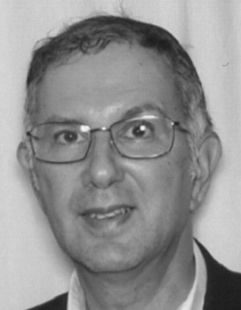
EPSON MFP image
COHEN Laurent
cohen [at] ceremade.dauphine.fr
Short bio
Research Director CNRS at Ceremade, Université Paris-Dauphine. Grand Prix from the French Academy of Sciences, EADS Foundation, 2009. IEEE Fellow for contributions to computer vision technology for medical imaging, 2010. For many years, he has been editorial member of the Journal of Mathematical Imaging and Vision, Medical Image Analysis and Machine Vision and Applications.
Topics of interest
Computer vison, image processing, Geodesics, Partial Differential Equations, Variational Methods, machine learning
Project in Prairie
Laurent Cohen’s research will focus on variational methods, PDEs and ML for image analysis, like object segmentation, shape analysis and deformation, in 2D or 3D images or point clouds. Applications lie in geometric structures present in biomedical imaging, in collaboration with institutes, hospitals or industry. He will participate in the PSL AI graduate school.
Quote
In the past 35 years, my research has focused on variational methods and Partial Differential Equations for Image Analysis with Deformable models and geodesic methods. A large part of my research has been done for image segmentation and shape recognition with applications in biomedical imaging, in collaboration with industry or hospitals (15 PhD supervision, among 25, with applications to biomedical imaging). Current work involves various aspects of Machine Learning.
Main topics:
Geodesic Methods: Image Segmentation, Active Contours Revisited. Applications to Medical Imaging.
Deformable Models: Edge-based or Region-based active contours, curve and surface Reconstruction, Image Segmentation and Restoration.
Machine Learning: Object segmentation and recognition.
Team
BERTRAND Theo
PhD student
MAKAROFF Nicolas
PhD student
